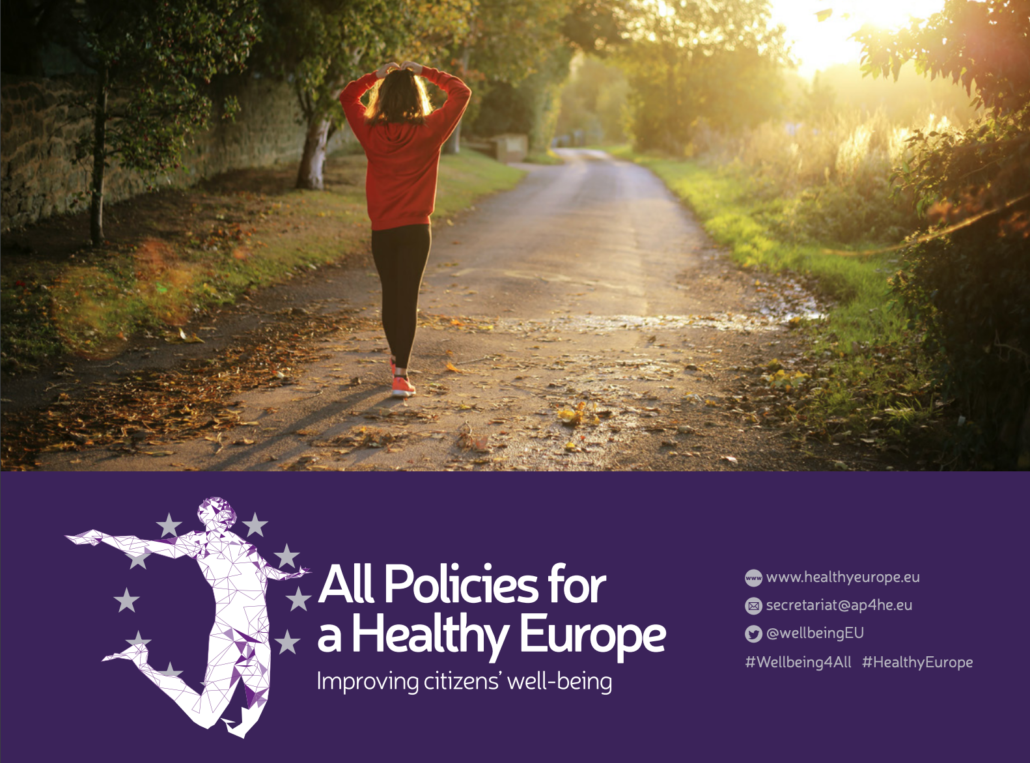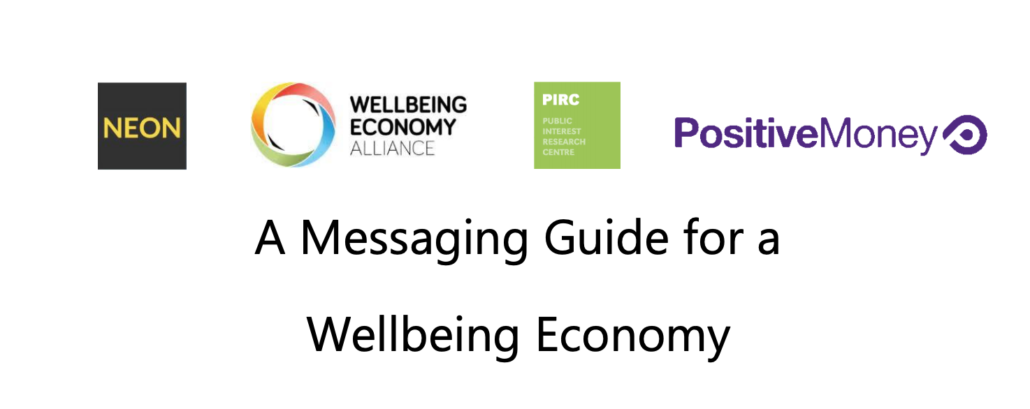As part of our work to amplify the important work in the Wellbeing Economy movement, these WEAll Weekly Update blogs will share some of the latest and greatest updates from our membership and beyond. Please use the comment box to share any relevant updates from this week and keep the conversation going!
Weekly Reads

Achieving an Economy of Wellbeing in Europe – Healthy Europe
“All Policies for a Healthy Europe is calling on the EU and its Member States to step up to the challenge and grasp the opportunity offered by the pandemic to effectively move beyond GDP as the main indicator for economic and all other policies”

Quarterly of the European Observatory of Health Systems and Policies – Opinion Piece from Katherine Trebeck “The Wellbeing Economy Agenda”
“Why go back to an economy that treats many of our most essential workers so badly and which implicitly tolerates such inequalities? The economic systems of some countries generate insecurity, despair and loneliness, which spurs desperate searches for ways to cope, whether at the pill box or the ballot box.”
The Alternatives Project – Project Launch – Sign their statement!
“We, the undersigned, believe that current social, economic, political, and educational arrangements reproduce relations of power that engineer profound inequities and will ultimately threaten life on the planet. We stand for alternative pedagogies and for just, regenerative education systems that will support the social transformations we need in order to create a richer, more equitable, and sustainable world.”
The Case for an Ecological Interest Rate – Policy Research in MacroEconomics
Driving all this growth and increased consumption is, of course, our economic and financial system, with money and its price as lubricant and enabler. What can be done about it?
Building a Resilient Economy – WWF, ZOE, NEF & WEAll
“In the wake of COVID, tackling the multiple interlinked crises the world is facing – climate change, biodiversity loss, food and water security, and inequality among others – requires policy makers to answer a key question: where should we focus to help drive this transition most rapidly, efficiently and fairly?”
Job Openings & Opportunities
- Senior Manager, Thriving Cities Initiative (Copenhagen, North America or Durban) – C40 Cities
- Share a story: Who’s a great example of social change where money, power and accountability are with the people they’re meant to serve?
- Research Project: The Governance of Food Systems in Cities: Assessing Risks and Gaps for a Sustainable Transition in the Decade of Action
- Startup Team Call for Applications: Flourishing Business Canvas Project
- Research Project: Building a ‘Wellbeing Economy’: developing a capability-based approach to capturing the complexity of social justice on a healthy planet
- Campaigner (North Sea transition advocacy) – Platform London
What to Watch
- Working Practices – Katherine Trebeck
- South Feminist Futures Festival
- The Wellbeing Economy #1 – Hosted by Pakhuis de Zwijger
- WEAll Talk: Yannick Beaudoin – “Embracing diversity and participation to reimagine the purpose of the economic system: The beginning of WEAll CAN story
- The Wellbeing Economy Messaging Guide – NEON, Positive Money, PIRC, and WEAll
Listen Up
- Is Capitalism Racist? – Podcast from Open Democarcy
- The Wellbeing Economy Lessons for the Future Policy Lab Podcast
- Discover WEAll Youth and the Wellbeing Economy
- Katherine Trebeck on BBC Scotland (2:36)
- Economic Narratives & Systems Innovation – FEASTA & EHFF
Upcoming Events
- February 1: Healing Our Nation: State-Based Solutions For Connecting People to Mental Health Care and Addiction Recovery Services – The United States of Care
- February 3: Towards a new socio-ecological contract – ETUI
- February 3: A Framework for Inclusive Capitalism – Rockefeller Foundation
- February 5: The Arab uprisings a decade on: Egypt and Tunisia – Transnational Institute
- May 19 & 20: Impact Summit – FutureX
WEAll Originals
Blogs:
- Economics for the People – Republished AEON Piece by Dirk Philipsen
- Village in the City – Building micro-local community around the world – a WEAll ‘Wellbeing Economy Correspondents’ Blog
- WEAll Weekly Update – January 22
- Wellbeing Economy Messaging Guide Event Recap
- What might social media look like in a Wellbeing Economy?
- The 2021 Wellbeing Economy Reading List
- Using green technology to foster technology transfers in Africa
Publications:
- Wellbeing Economy Messaging Guide– Positive Money, PIRC, NEON, and WEAll
- Measuring Wellbeing, Rutger Hoekstra
- Business in the Wellbeing Economy, Olga Koretskaya & Gus Grosenbaugh
From the Archives
- 10 Principles to Build Back Better
- Rebuilding to a US Wellbeing Economy
- What is a Wellbeing Economy?
- The Business of Wellbeing Guide
the discussion?
Let us know what
you would like
to write about!

